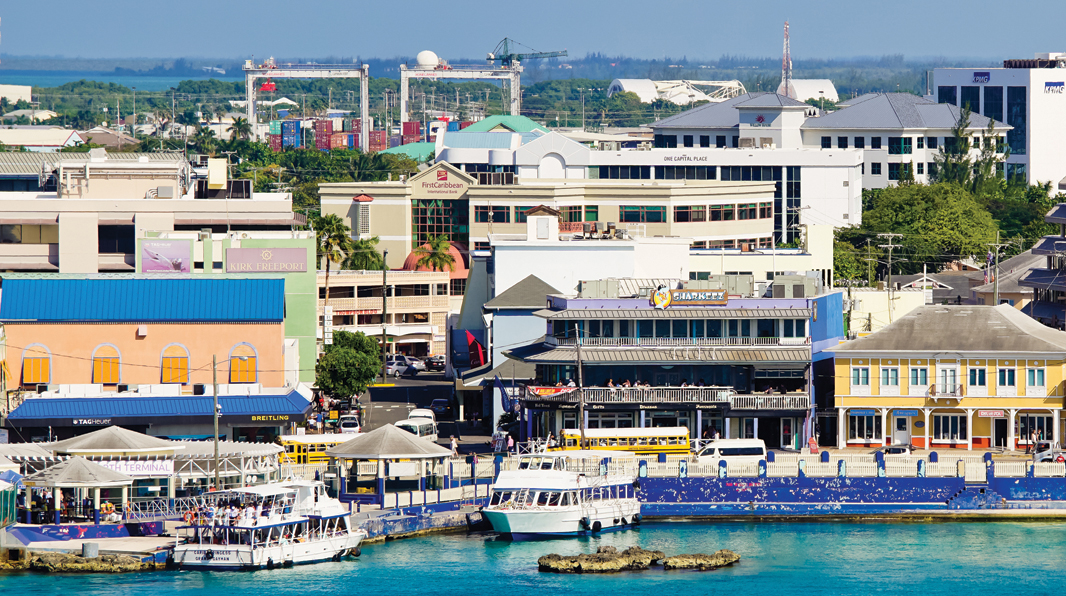What AM Best Says
AM Best: COVID-19 Pandemic Served Effectively as the Caribbean’s ‘Major Catastrophe in 2020’
The International Monetary Fund estimates that, in aggregate, tourism-dependent countries’ GDP contracted by almost 10% last year due to curtailed international travel.

COVID-19 CATASTROPHE: COVID-19 resulted in a significant loss of employment in the Caribbean, where more than 10 countries source as much as 30% of their GDP from tourism. The high number leaves the region vulnerable to external shocks; the world average is only around 14% of GDP, AM Best analysts say.
Ricardo Longchallon, senior financial analyst, and Ann Modica, associate director, both of AM Best, discussed the August 2021 Best's Market Segment Report: Caribbean P/C Insurers Resilient Despite COVID-19; 2021 Hurricane Season Looms with AM Best TV. Most AM Best-rated property/casualty insurers in the Caribbean region performed better than expected in 2020 despite the hurdles presented by COVID-19, they said. The lack of hurricane and other wind activity in the Caribbean “meant that the pandemic effectively served as the region's major catastrophe in 2020,” the report noted.
Following is an edited transcript of the interview.
Given the region's dependency on tourism, to what extent did COVID hurt the economy and market in 2020?
Modica: Tourism-dependent countries in the Caribbean were particularly hard hit due to the undiversified nature of their economies. The International Monetary Fund is estimating that, in aggregate, tourism-dependent countries' GDP contracted by almost 10% last year as border closures and lockdown measures curtailed international travel.
Over 10 countries in the region source as much as 30% of their GDP from tourism. To put it into perspective, the world average is just at about 14% of GDP. Most of the Caribbean is at double, if not significantly above this level, which really leaves them vulnerable to external shocks.
I'm also going to briefly touch on how COVID resulted in a pretty significant loss of employment in the region. The tourism sector is a major contributor to employment with many countries seeing an uptick in unemployment last year.
All of this leads to lower domestic demand and a bigger strain on the country's fiscal accounts when fiscal revenues are limited to provide benefits to those who are affected by the pandemic.

One of the main drivers for growth in the insurance industry is growth in the country’s GDP. It’s expected that the region will rebound in 2021.
Ann Modica
AM Best
How are P/C insurers in the region managing hardening reinsurance pricing?
Longchallon: Reinsurance costs drive pricing in the region. For the most part, there is no requirement to file for rate increases as insurers are required to do in the U.S., so increases in reinsurance pricing and, for that matter, decreases in pricing, do not need approval by regulators.
Rated insurers in the Caribbean can adjust rates fairly easily and have been implementing rate increases along with higher deductibles in order to maintain an adequate rate structure.
Do you think life/health insurers were dealt a difficult year with the pandemic?
Longchallon: Yes. Rated life/health companies experienced a disruption in top-line growth in 2020 as a result of the pandemic. Premiums decreased as some insurers provided premium relief to policyholders impacted by economic conditions.
Life/health insurers with direct exposure to hotel and hospitality investments realized impaired valuations, and this was the single-largest component, which drove the declines in total revenue and net income.
On the flip side, however, these insurers benefited from lower utilization expense in health claims as a result of changes in policyholder behavior and lack of access to medical care due to stay-at-home restrictions. I would say overall, the decline in net income was less than anticipated at the onset of the pandemic.
Is there room for growth in this region? Are insurers doing enough to build awareness?
Modica: One of the main drivers for growth in the insurance industry is growth in the country's GDP. It's expected that the region will rebound in 2021. The IMF is projecting that tourism-dependent countries will rebound by 2.4% this year, and that will uptick to 4.4% next year.
Then if we look at the commodity exporters, among them, they are also expected to recover with the IMF forecasting growth of 4% this year, and all things being equal, this bodes well for the insurance market. However, I would be remiss if I didn't mention that there are several downside risks with the most prominent being the further outbreak of the virus, such as the delta variant that we're seeing now. This could force governments to reinstate more restrictive measures that would drag the economy for the tourism-dependent economies.
When you look at the commodity exporters, they would also be impacted due to the likelihood that lower, external demand for commodities would take place in that type of situation.
Longchallon: There is a significant protection gap in the region. I believe if we look at 2017 with hurricanes Irma and Maria, economic losses were in the region of $32 billion, but insured losses were just about $5 billion, which indicates a protection gap of more than 80%. By comparison, the protection gap in North America is approximately 50%.
This indicates that there should be room for growth regionally. However, penetration beyond existing markets has been difficult for insurers, and the gap has remained fairly consistent.
I'm not convinced that it is a lack of awareness. Several jurisdictions have insurance associations that promote the importance and benefits of insurance protection, and rated Caribbean insurers are active in their communities supporting and contributing to various events and causes.
Related:



























